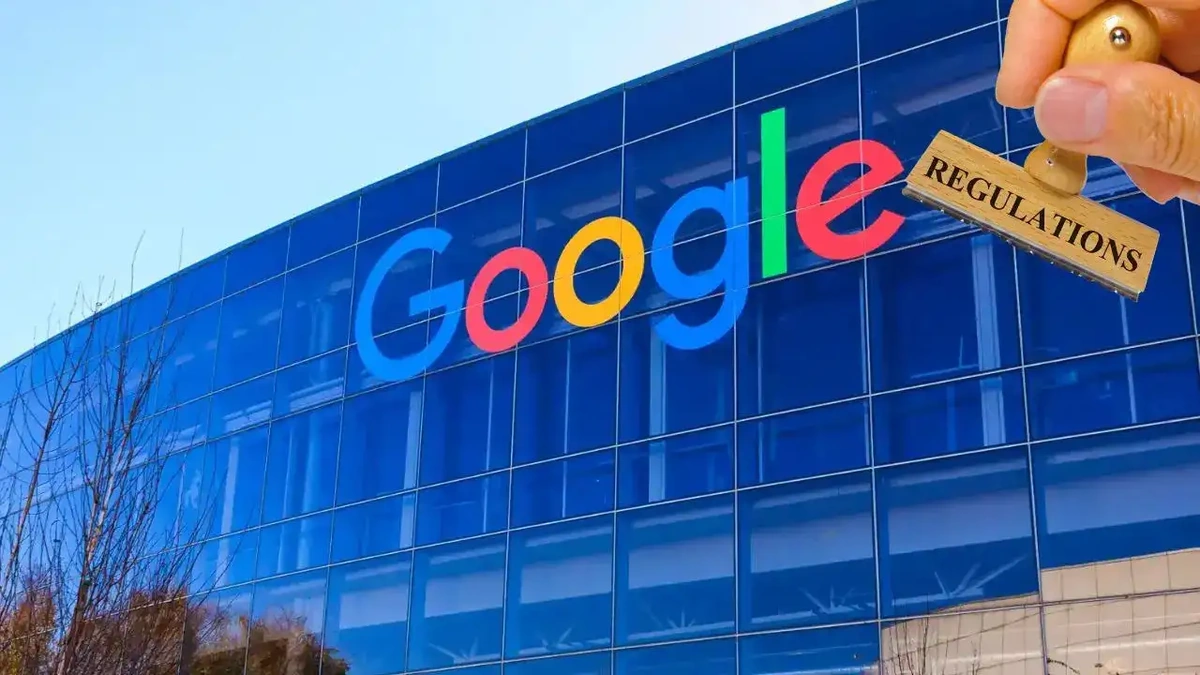Alright, folks, let’s talk about something that might seem a bit dry at first glance – Google regulation UK . But trust me, this is juicy stuff, especially if you’re in India and wondering how changes halfway across the world can impact your daily digital life. The UK is getting ready to tighten the reins on Google’s search market power , and while it’s happening an ocean away, the ripples will definitely be felt here. I initially thought it would be another yawn-inducing bureaucratic move, but then I started digging, and what I found fascinated me. Let’s dive in, shall we?
Why Should India Care About UK’s Google Crackdown?

Here’s the thing: Google’s dominance isn’t just a UK problem; it’s a global one. Think of Google as that super-popular kid in school who everyone copies. Whatever Google does with its algorithms, its ad policies, or its handling of user data sets the tone for the entire internet. If the UK manages to successfully level the playing field, it could create a domino effect. Other countries, including India, might just follow suit. And that’s a big deal for Indian businesses trying to get noticed online, for Indian consumers seeking unbiased information, and for anyone who cares about a fair and open internet.
Imagine a small saree shop in Varanasi trying to compete with a massive e-commerce platform that spends millions on search engine optimization . Currently, that shop is at a major disadvantage. Stricter digital competition rules could help that shop get a fairer shake in search results. This regulation in UK is important to understand, and might bring change in countries all over the world. That’s why what’s happening in the UK is worth paying attention to. It’s not just about them; it’s about us too.
The “How” | Understanding the UK’s Regulatory Playbook
So, how exactly is the UK planning to do this? Well, it boils down to a few key strategies, primarily through its Competition and Markets Authority (CMA). They’re not messing around. A common misconception is that the UK just wants to fine Google into submission. While fines are certainly on the table, the CMA is also looking at more fundamental changes to how Google operates. This includes things like requiring Google to be more transparent about its algorithms, preventing it from favoring its own products in search results, and making it easier for competitors to access data. The specifics will depend on further reviews and consultations, but the direction is clear: the CMA wants to curb Google’s ability to squash competition. According to the CMA’s official reports, they aim to foster innovation and choice in digital markets.
Let me rephrase that for clarity: It’s not just about punishing bad behavior; it’s about creating a system where fair competition can thrive. This can be seen by innovative technologies .Think of it like this: if Google is the referee in a football match, it shouldn’t be allowed to play on one of the teams. The UK wants to make sure Google’s refereeing is impartial. What fascinates me is the potential for unintended consequences. Could stricter regulations stifle innovation? Possibly. But the UK seems to believe that the benefits of fair competition outweigh the risks.
Emotional Angle | Leveling the Playing Field
Let’s be honest, the internet can feel like a rigged game sometimes. We’ve all experienced that frustration of searching for something and only finding results from giant corporations. It’s easy to feel powerless in the face of these tech behemoths. The UK’s move represents a challenge to that feeling of powerlessness. It’s a signal that even the biggest companies can be held accountable.
And that’s an idea that resonates deeply, doesn’t it? Especially for small businesses and entrepreneurs who are trying to make their mark. The dream of a fair playing field is powerful. What if this saree shop in Varanasi could genuinely compete with the big players, not just because of luck, but because the rules are fair? It’s a shot of hope. It can give you the inspiration to try something new. This is why this news matters, and why it’s worth keeping an eye on the UK’s efforts. Because, at the end of the day, it’s not just about Google; it’s about the kind of internet we want to create.
Potential Impacts on Indian Businesses and Consumers
Okay, so we know why this matters in theory, but what about the practical impact on Indian businesses and consumers? Well, a successful regulatory framework in the UK could pave the way for similar measures in India. This could lead to several benefits:
- Increased visibility for small and medium-sized enterprises (SMEs) in Indian search results.
- Greater choice and lower prices for consumers, as online marketplaces become more competitive.
- A more level playing field for Indian startups, encouraging innovation and entrepreneurship.
But it’s not all sunshine and rainbows. There are potential downsides too. Stricter regulations could increase the cost of doing business for Google and other tech companies, which could ultimately be passed on to consumers. There’s also the risk of over-regulation, which could stifle innovation and slow down economic growth. As per the current reports companies like Kindle might be affected . Finding the right balance is key, and that’s something Indian policymakers will need to carefully consider if they choose to follow the UK’s lead.
The Future of Digital Regulation | A Global Trend?
What initially appeared straightforward quickly proved to be more intricate. The UK’s move isn’t happening in a vacuum. It’s part of a broader global trend towards greater scrutiny of big tech companies. The European Union, the United States, and other countries are all grappling with similar questions about how to regulate digital markets and ensure fair competition. What fascinates me is the potential for a global regulatory framework to emerge. Imagine a world where tech companies are held to the same standards, regardless of where they operate. It sounds utopian, I know. But it’s not entirely out of the realm of possibility. The important thing to note is that antitrust enforcement is evolving, and companies like Google needs to evolve as well.
FAQ
Frequently Asked Questions
What exactly does “search market power” mean?
It refers to a company’s ability to dominate the search engine market, giving them significant control over what information users see and how businesses can reach their audience. In the UK, Google is considered to have dominant market position .
How will these regulations affect my small business in India?
If India adopts similar regulations, you could see increased visibility in search results and a fairer chance to compete with larger companies for customers.
Are these regulations only targeting Google?
While Google is the primary focus due to its market share, the regulations could potentially apply to other large tech companies with significant market power.
Could this lead to censorship of search results?
That’s a valid concern. Regulations need to be carefully designed to promote competition without compromising free speech or access to information.
Where can I find more information about the UK’s regulations?
Check the website of the UK’s Competition and Markets Authority (CMA) for official reports and updates.
So, here’s the final insight: Keep an eye on the UK. Their experiment in regulating Google could be a glimpse into the future of the internet – a future where competition is fairer, innovation thrives, and even the smallest saree shop in Varanasi has a fighting chance. It’s not just about Google, it’s about building a better digital world for everyone. The battle for digital competition is on!



